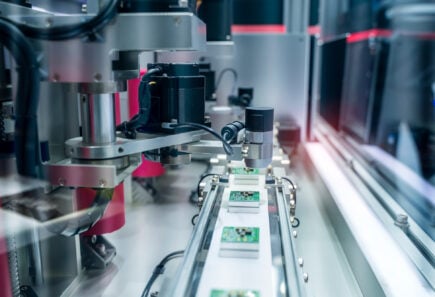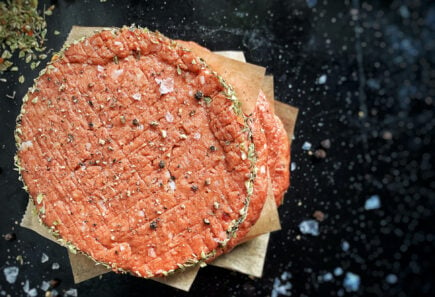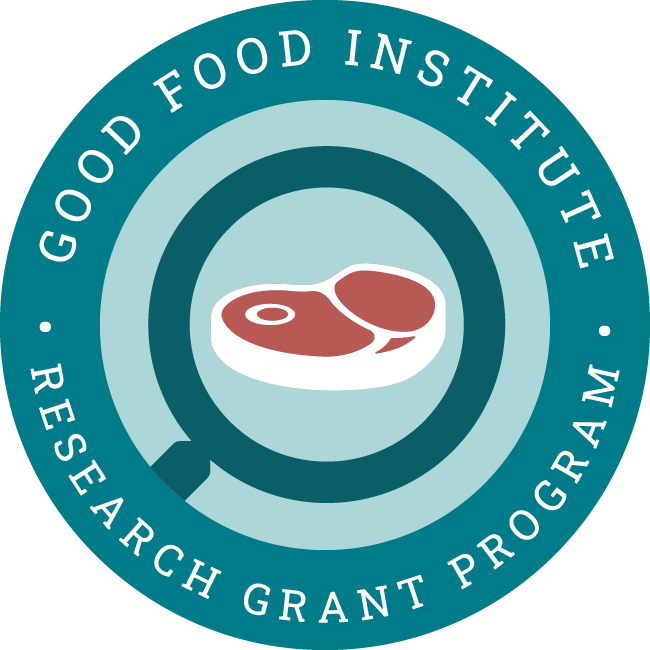Project aims
This project will help develop a low-energy extrusion process to produce highly-functional plant fibers for whole-cut applications. The outcome would leverage self-aggregating proteins to improve the sustainability and quality of extruded products. Overall, this work would inform future refinements to extrusion processes and would contribute to the scalable production of improved whole-cut plant-based meat.
Principal researcher

Dr. Lutz Grossmann
Assistant professor, University of Massachusetts Amherst, USA
Dr. Grossmann has expertise in food material science, especially focusing on the development of next-generation alternative proteins. He has investigated plant protein processing and structuring principles of proteins.
Constructing next-generation meat, fish, milk, and egg analogs
In collaboration with a fellow GFI grantee (Dr. Julian McClements), Dr. Grossman has published a peer-reviewed analysis that summarizes the current science of plant-based food production and highlights areas of needed research.
View related grant projects

Creating fiber-like structures
Learn how GFI grantee Dr. David Julian McClements is developing an alternative to extrusion for producing plant-based meat at the University of Massachusetts.

Integrating sensors into extrusion
Learn about Dr. Filiz Koksel’s work at the University of Manitoba to integrate sensors into plant-based meat extrusion.

Microstructure engineering
Learn about GFI grantee Dr. Mario Martinez’s work at the University of Guelph engineering microstructures for whole-muscle plant-based meat.

Stacking plant protein sheets
Learn about Dr. Hanry Yu’s research to recreate the texture of thick animal meats by stacking layers of plant protein sheets at A*STAR.
Explore research opportunities
-
Cultivated
-
Fermentation
-
Plant-Based
Consumer and sensory research to guide alternative fish R&D
Consumer and sensory research can help companies and academic researchers better understand seafood consumers’ needs and desires. Understanding consumers’ needs will allow alternative fish researchers to ask and prioritize the…
-
Cultivated
-
Fermentation
-
Plant-Based
Catalog of animal meat flavors
Creating a catalog of molecules responsible for the characteristic flavor of a species will enable alternative protein product manufacturers to create products that more accurately replicate the sensory experience of…
-
Cultivated
-
Fermentation
-
Plant-Based
Optimizing fat profiles for nutritional and sensory properties
Because alternative meat’s fat content and fatty acid profile can be more easily controlled than conventional meat’s, there is an opportunity to alter fat content for nutritional benefits. Additional research…
Check out related resources

The science of plant-based meat
Learn about the science of plant-based meat. Discover resources and research on the latest technological developments and key scientific questions.
Plant-based retail market overview
Explore sales data for plant-based meat, egg, and dairy products in the U.S. retail market. Find key category insights, size, sales growth, and purchase dynamics for the plant-based industry.

Solutions Database
Explore startup ideas, commercial opportunities, research projects, and investment priorities throughout the alternative protein supply chain.

Collaborative Researcher Directory
Use this directory to find scientific collaborators in the alternative protein field.

